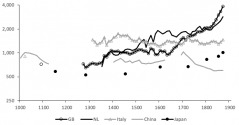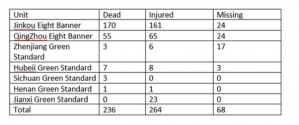solarz
Brigadier
I came upon this video:
The greatest impression I got from this was that history is truly a river. When it comes to a certain point, there is nothing individual persons can do to prevent events from happening the way they will. Li Hongzhang tried to do this by cultivating a strong navy for the Qing dynasty, yet this simple military reality was lost on the other ministers.
We look back at this with 150 years of hind sight, and we wonder how these highly educated ministers could be so foolish. Yet, we look today at the US, and we see the same pattern of behavior: denying reality and trying to carry on as if nothing has changed.
The greatest impression I got from this was that history is truly a river. When it comes to a certain point, there is nothing individual persons can do to prevent events from happening the way they will. Li Hongzhang tried to do this by cultivating a strong navy for the Qing dynasty, yet this simple military reality was lost on the other ministers.
We look back at this with 150 years of hind sight, and we wonder how these highly educated ministers could be so foolish. Yet, we look today at the US, and we see the same pattern of behavior: denying reality and trying to carry on as if nothing has changed.


